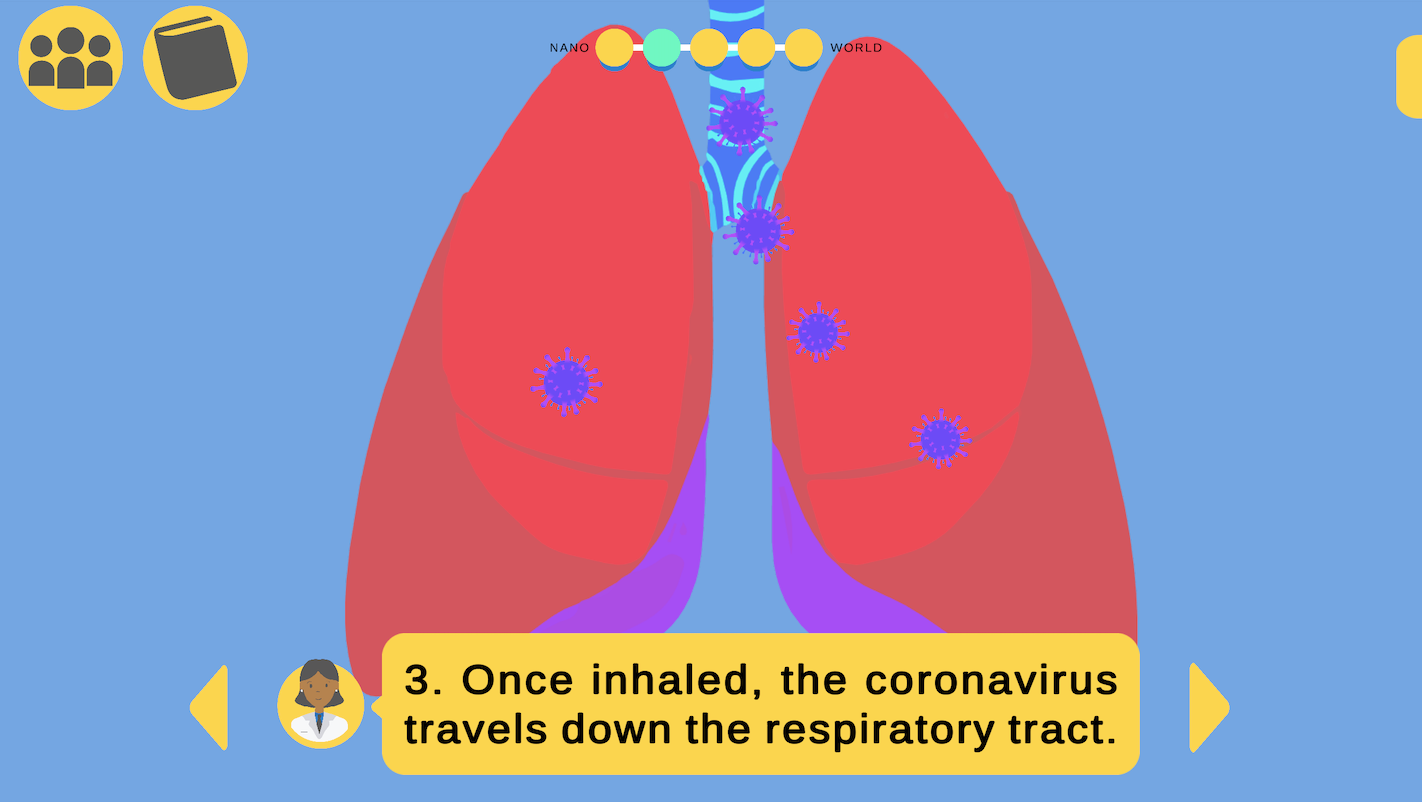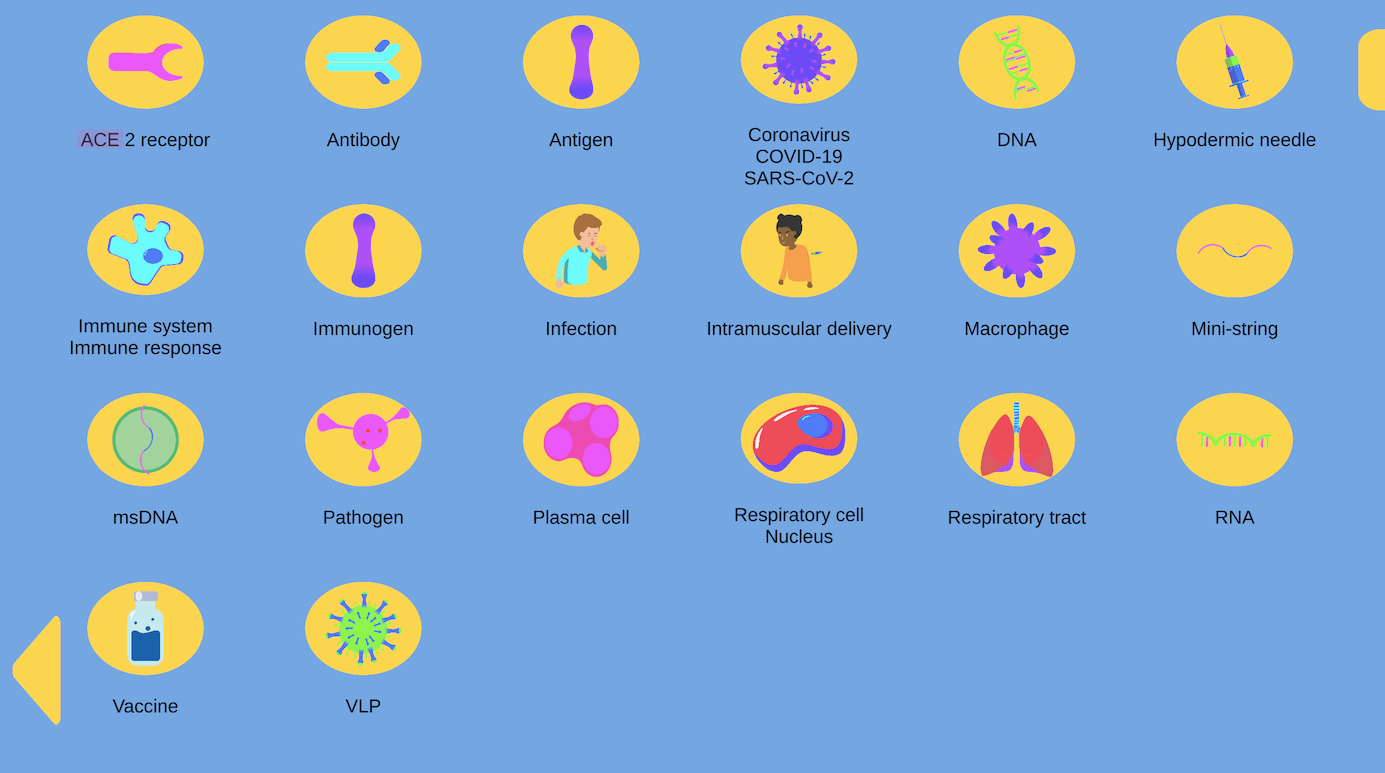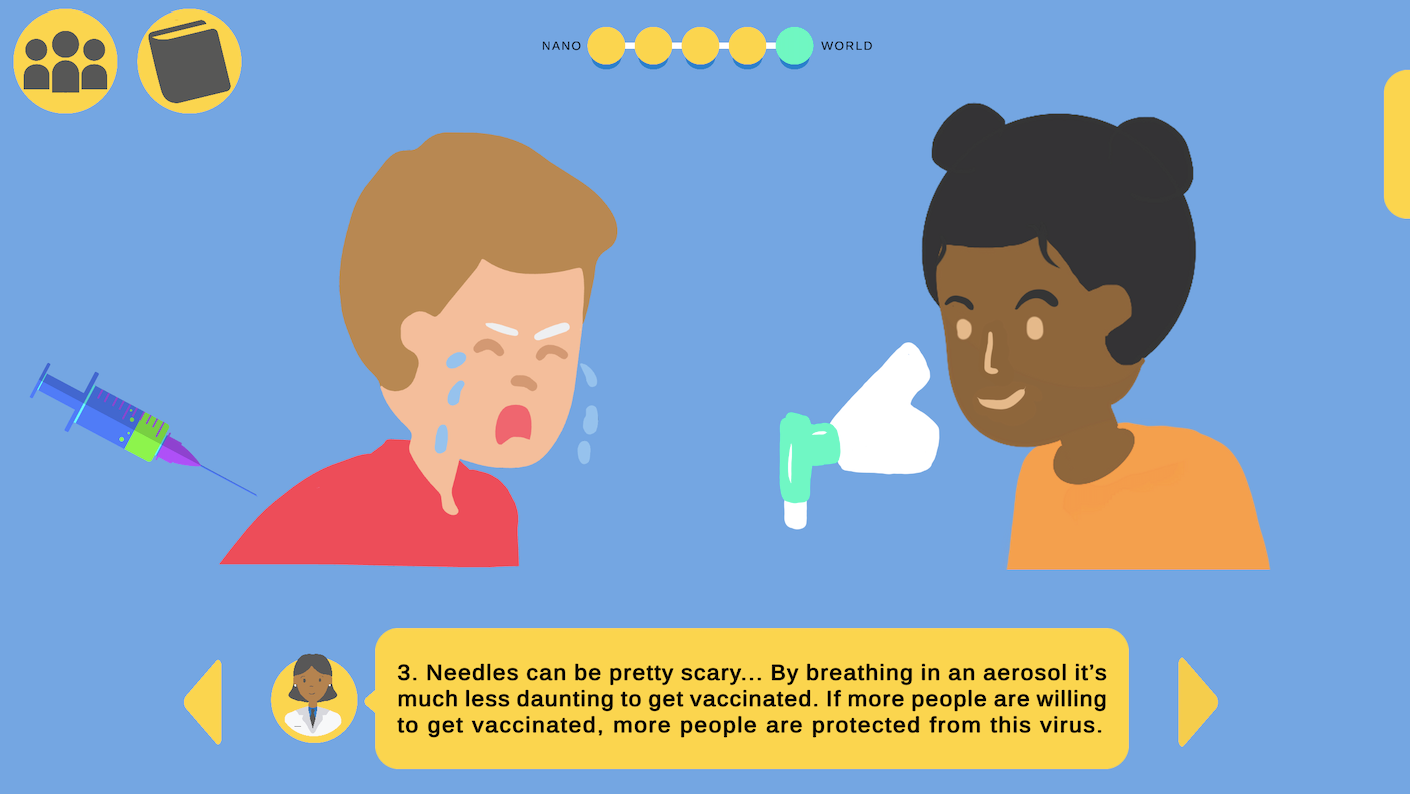Games Institute (GI) and Waterloo Institute for Nanotechnology (WIN) researchers have been working together on strategies to better educate the public about how the application of nanotechnology (the manipulation of materials on an atomic or molecular scale) impacts our daily lives. The first of these projects focuses on educating the public about how DNA-based nasal sprays can be used as intranasal vaccines during this crucial time.

The game, created by GI members as a knowledge translation tool, aims to visualize the current science of vaccines and how cutting-edge nanotechnology, developed at the University of Waterloo, will enhance future innovation of vaccines. The game includes a helpful guide that unpacks different terminology such as RNA or DNA.

Players move through a series of chapters that visualize how COVID-19 is transmitted, infects, and spreads through a healthy respiratory system, how different vaccines fight the virus, and how nanotechnology vaccines work.
Helpfully, the game demonstrates how many different types of vaccines fight covid, highlighting how they all perform differently. This approach will help players understand the similarities and differences between existing vaccines, such as viral vector versus mRNA, before learning about nanotechnology vaccine innovations.
The game focuses specifically on the “Synthetic Infection Vaccine”, an internasal vaccine currently being developed by WIN researchers in collaboration with Theraphage Inc. at UWaterloo. While this technology can be used to fight COVID-19, it can also combat any future viruses we may encounter.
One selling point of intranasal vaccines is that breathing in an aerosol is much less scary than receiving an injection via needles for children and adults with phobias.

The vaccine game is just one project in a larger partnership between WIN and the GI in which interdisciplinarity and knowledge translation are prioritized.
Sushanta Mitra, Executive Director of WIN, explains:
The WIN-GI partnership is an excellent example of how STEM-focused research centres can work with entities outside their discipline to create storytelling that has a wider reach and enrich the interdisciplinary focus within our campus.
You can play the game now and share it with others!
GI Credits
-
Alice Penq - Lead Designer, Illustrator, and Developer
-
Ekaterina Durmanova – Associate Designer and Lead Illustrator
-
Johannes Kopf – Associate Designer and Lead Developer
-
Ally Suarez – Writing Co-Lead
-
AJ Abistado – Writing Co-Lead
-
Dr. Lennart Nacke – Voice Actor, Audio Mixing, and Faculty Supervisor
WIN Credits
- Dr. Roderick Slavcev – Research Writing and Editing
- Dr. Lisa Pokrajac – Research Writing and Editing
- Dr. Oleq Stukalov – Research Writing and Editing